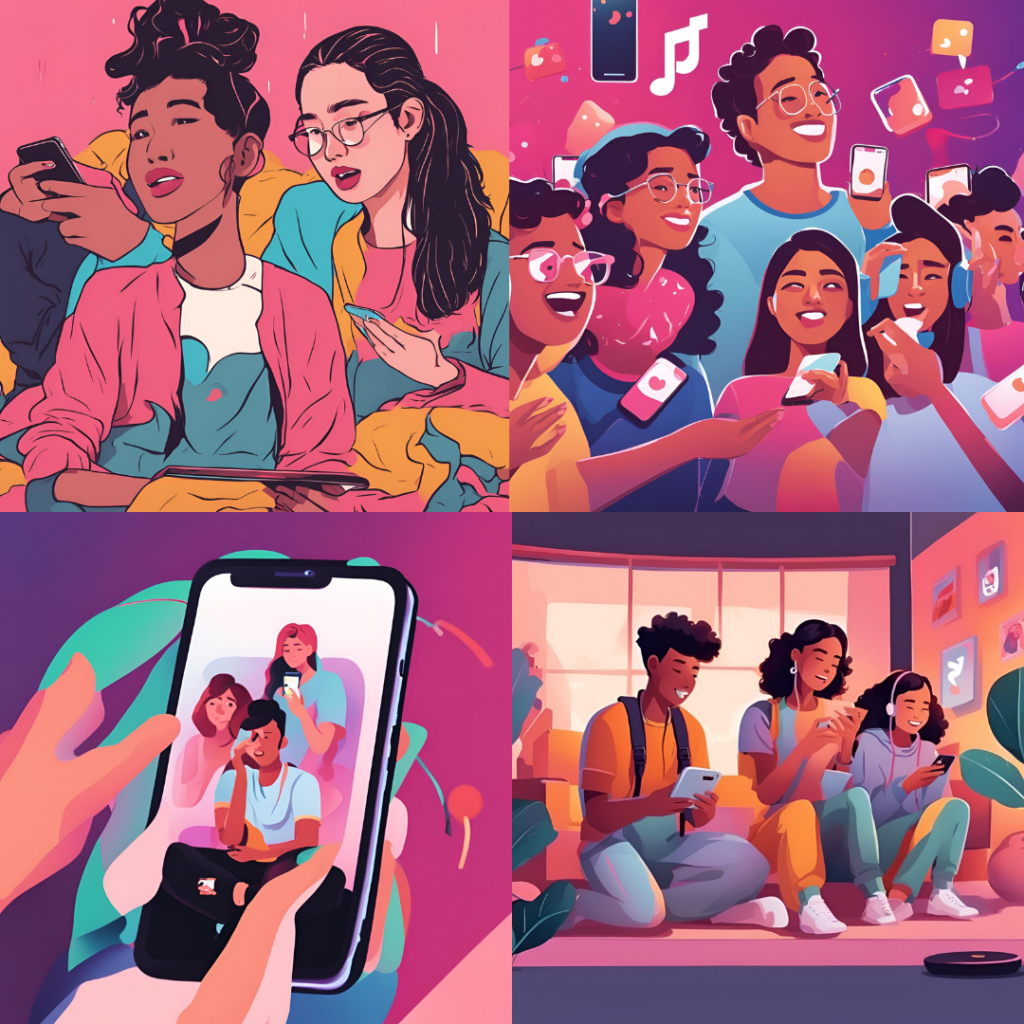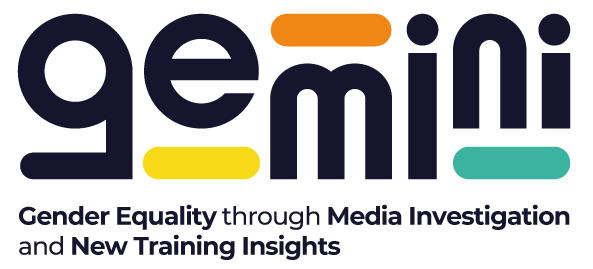Gen Z, TV and TikTok
Irish Young People’s Viewing Habits
By Izzy Fox, 12 August 2024
How do upcoming GEMINI activities respond to recent viewing habits of young adults in Ireland? Do Irish youngsters actually watch long-form serial drama? Or has short-form video content completely taken over? Read on below to know more.
According to Ofcom’s recent annual Media Nations report, less than 50% of the teen and young adult population in the UK (known as Gen Z) is watching “traditional TV – live and catch-up programming on a television set at home – each week”. Figures published last year by the Irish Times, suggest similar trends in Ireland, as with “15-34 year-olds, linear television viewing plunged 18.4 per cent in the first half of 2023”. Consequently, “a typical 15-34 year-old [in Ireland] now watches an average of 52 minutes of linear television every day, well shy of the average of two hours and 31 minutes for all adults”, pointing to significant generational differences in the Irish context. The Ofcom report also showed that the 16-24 year olds surveyed in the UK “spent three times as long each day (1hr 33min) watching video-sharing platforms such as TikTok and YouTube”.
While these figures are probably not surprising to most readers, according to feedback from GEMINI focus groups conducted with secondary/post-primary school students in Ireland, the findings do not represent the full picture of young people’s television viewing habits.
Three Irish focus groups held between October and December 2023 involved a total of 28 Irish-based 15/16-year-old… students. Effort was made to ensure the focus groups were as representative and diverse as possible, in terms of gender (10 boys; 19 girls) and geographical location (both (sub)urban and rural). (GEMINI Report, Hansen et al 2024, forthcoming).
For instance, while feedback from the focus groups supports the findings from the Ofcom study and the Irish Times figures, young people’s preference for watching short-form video-sharing platforms does not reflect an outright rejection of longer-form media, including television serial drama. On the contrary, the young people we interviewed as part of the focus groups expressed a keen interest in watching scripted TV series, across many genres, albeit via streaming platforms, particularly Netflix, Disney+ and Amazon Prime, and usually on a digital device, rather than on a television set (GEMINI Report, Hansen et al 2024, forthcoming). These trends appear to be transnational, since similar developments show up in GEMINI focus group interviews in Romania, Italy and Denmark.

Interestingly, students did not express an interest in watching series or films on YouTube or TikTok. Instead, these and other social media websites represent a locus for young people to become familiar with cultural references and trends, such as informing them of the TV series that are currently popular: “If a recommendation comes up on TikTok or if a review comes up on TikTok then you could watch the show”. The young people noted that TikTok played a significant role in encouraging them to watch Squid Game, as they referenced FOMO (fear of missing out) as a factor in them choosing to watch a particular show. Additionally, social media are also the main source of education for young people regarding important social issues, particularly related to gender and sexuality: “[I learn about gender issues] mostly on TikTok and Instagram”.
These findings present a cause for concern as well as highlighting the importance and value of the GEMINI project. For instance, a recent study conducted by Dublin City University’s Anti-Bullying Centre, and referenced in a previous blog post on the GEMINI website, “has shown that boys are exposed to toxic content within twenty three minutes of social media usage, through algorithmic recommendations, whether or not they have sought it out” (2024).
Consequently, there is a pressing need in the Irish secondary school classroom for a comprehensive toolkit of educational resources with a focus on digital media literacy, as well as gender and sexuality issues, in order to counter the swathes of toxic material, as well as the plethora of mis/disinformation proliferating online to which young people are exposed. The GEMINI project team will publish such a toolkit of resources to be piloted in schools later this year. Keep an eye on the project website for more information about GEMINI’s digital toolkit of educational resources for teaching gender issues through television serial drama to European high school students.


